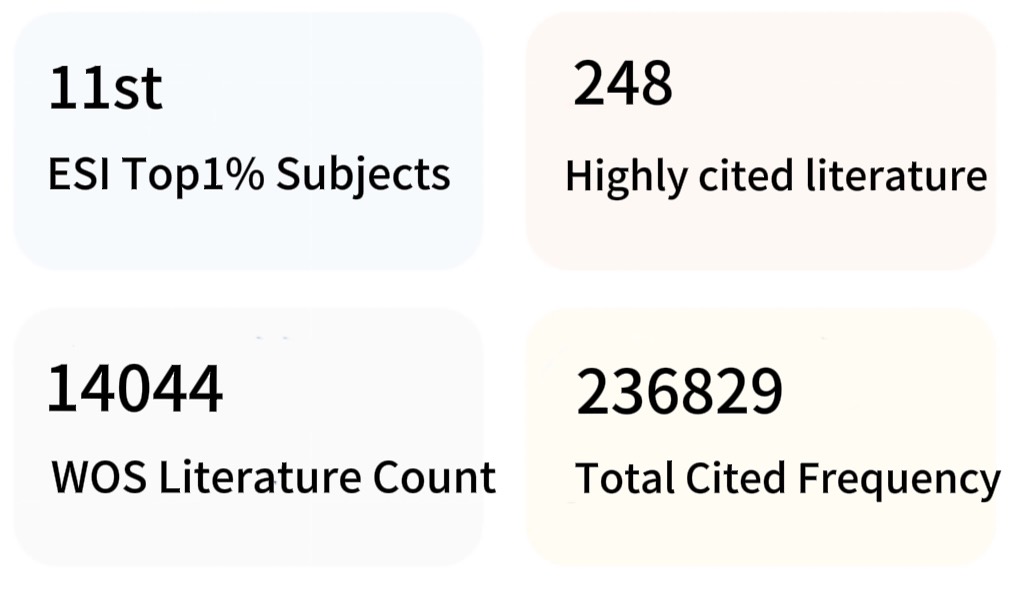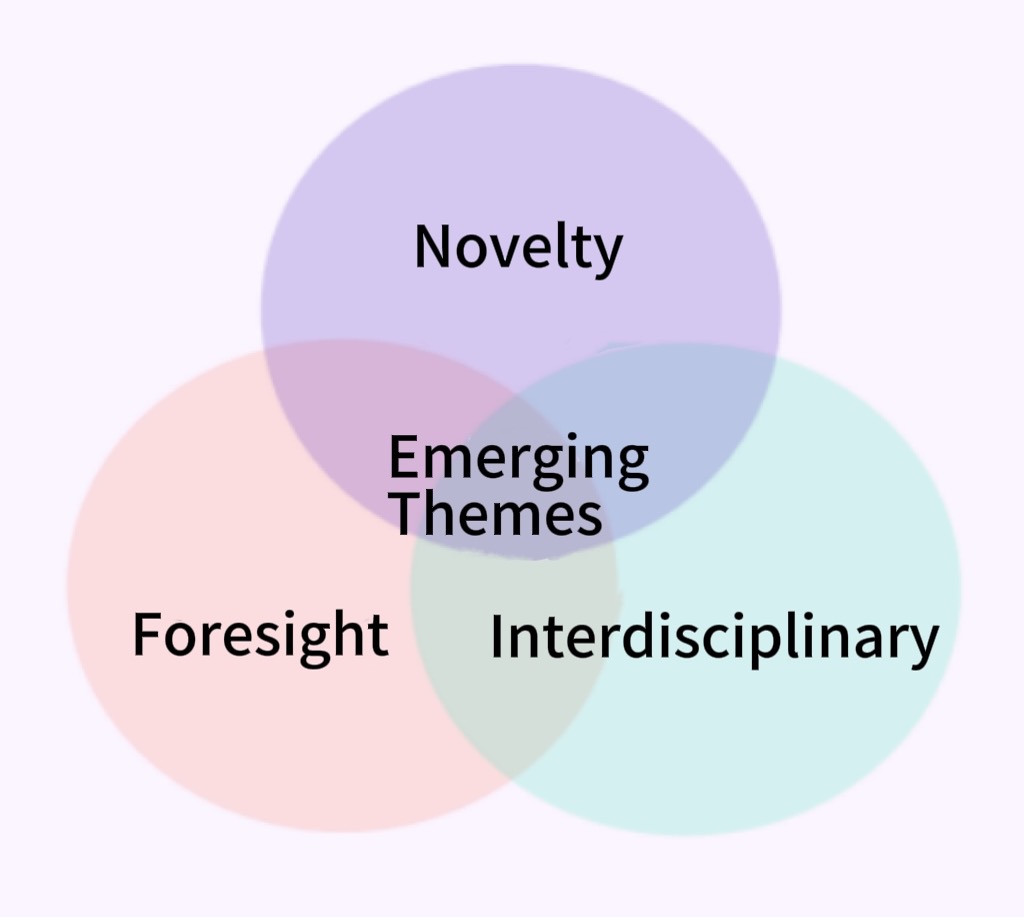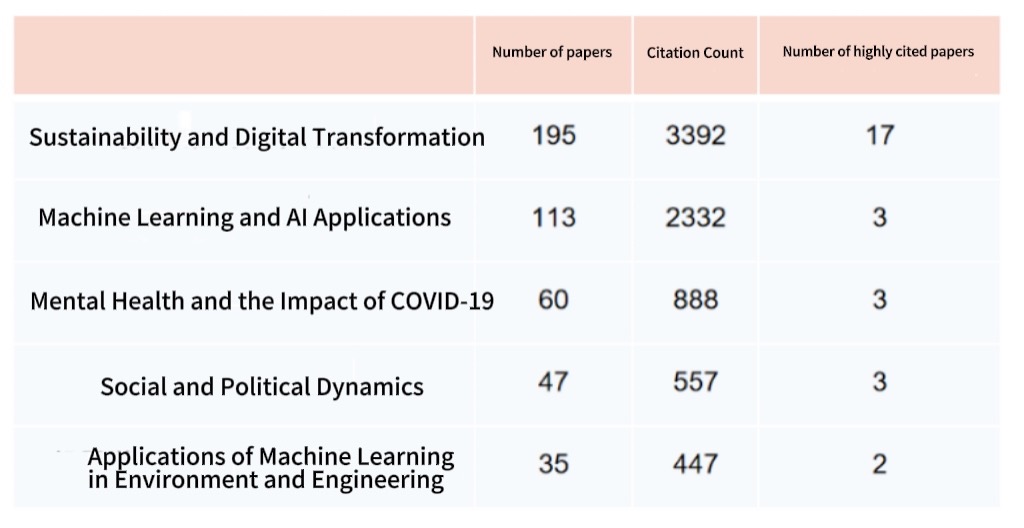From corporate green transformation and smart city data analysis, to algorithms for enhancing carbon productivity and models for digital rural governance—RUC’s research rooted in China’s practical needs is driving innovation across multiple fields —these academic explorations rooted in China’s practice are continuously being transformed into innovative momentum in 11 of RUC’s disciplines ranked in the top 1% globally by ESI. The latest data shows that RUC’s advantageous disciplines such as Economics and Business, and Sociology, are using machine learning to deconstruct complex financial systems and reshaping the logic of urban and rural governance through digital technology, building a unique research paradigm at the intersection of sustainable transformation and artificial intelligence.
ESI Top 1% Disciplines Overview
ESI is one of the most widely used tools in the world to understand the academic level and influence of universities, research institutions, and countries/regions. On March 13, 2025, Clarivate Analytics released the latest ESI data, in which RUC’s 11 fields—Economics and Business, General Social Sciences, Mathematics, Psychology and Psychiatry, Computer Science, Physics, Chemistry, Materials Science, Environmental Science and Ecology, Engineering, and Clinical Medicine—remain in the top 1% globally. Among them, 7 fields including Economics and Business, Social Sciences, General, and Computer Science have seen a steady rise in their international rankings.

Emerging Research Themes
Clarivate Analytics updates global emerging research themes monthly based on literature published in the Web of Science over the past five years.

It uses co-citation analysis to identify a set of core papers and then employs generative artificial intelligence language for thematic summarization. Emerging themes generally have the following characteristics: high development potential, novelty and a certain level of influence, and the integration of interdisciplinary approaches as one of the driving forces behind their emergence.
According to the latest data, research papers from RUC cover 25 emerging research themes. After manual screening, the main ones include:

Main Emerging Research Themes in Key Disciplines
01 Economics and Business
Emerging Theme 1: Sustainability and Digital Transformation

This theme focuses on economic and business issues in the Chinese context, covering multiple aspects such as corporate governance, digital transformation, and the impact of environmental policies on corporate behavior. For example, in corporate governance, it explores agency problems under China’s unique equity structure and the characteristics of state-owned enterprise governance; in digital transformation, it examines the impact of the digital economy on corporate development; and in environmental policies and corporate behavior, it analyzes the influence of climate change, environmental regulation, green technology, and green governance on enterprises. It also studies the impact of corporate social responsibility and economic policy uncertainty on corporate decision-making, providing a multi-dimensional perspective and in-depth analysis of the development paths of Chinese enterprises in a complex economic environment.
Emerging Theme 2: Machine Learning and AI Applications

This theme mainly focuses on the financial sector, including financial text analysis, cryptocurrency markets, stock return characteristics, portfolio construction, audit quality measurement, and corporate governance. For example, in financial text analysis, it studies the large language model FinBERT, which performs well in sentiment classification and information extraction; in corporate governance, it uses machine learning methods to study the impact of corporate governance structure on financial distress, emphasizing the importance of governance efficiency. These studies provide empirical evidence and theoretical support for understanding the operation mechanism of financial markets, optimizing investment strategies, and improving corporate governance levels.
02 Sociology
Emerging Theme 1: Sustainability and Digital Transformation

This theme focuses on multiple socio-economic issues in China against the backdrop of sustainable development and digital transformation, including land use changes, poverty reduction policy effects, and urbanization issues. In land use, it examines the trends, driving factors, and regional differences in China’s arable land and construction land, revealing that land policies and planning need to better adapt to regional characteristics and demands. In poverty reduction policies, it evaluates the impact of relocation and targeted poverty alleviation policies on poor families’ income and multidimensional poverty. It also explores the relationship between income inequality and carbon productivity, as well as the spatial coupling coordination between population growth, land use, and housing supply, providing a multi-dimensional perspective and in-depth analysis of the complex challenges China faces during rapid socio-economic transformation.
Emerging Theme 2: Machine Learning and AI Applications

This theme covers the application of machine learning in urban studies, energy economics, and communication technology, mainly exploring issues such as the spatiotemporal patterns of urban vitality and their influencing factors, the application of geographically weighted regression models in housing price analysis, innovations in dialogue recommendation systems, and the effectiveness and limitations of topic modeling in communication research. These studies provide important theoretical support and methodological guidance for research and practice in related fields.
Conclusion
In the latest ESI discipline rankings, 11 of RUC’s disciplines, including Economics and Business and Sociology, continue to rank in the global top 1%, demonstrating the long-term accumulation of comprehensive disciplinary strength. It is worth noting that RUC’s advantageous disciplines have shown strong cross-disciplinary innovation capabilities in the digital economy and artificial intelligence wave—Economics and Business using machine learning algorithms to deconstruct complex financial systems, and Sociology using digital technology to examine the mechanisms of urban development. Both of these disciplines have formed research highlands in the fields of “sustainable transformation” and intelligent technology application.” This not only reflects the forward-looking layout of disciplinary development but also reveals the inevitable trend of the deep integration of humanities and social sciences with emerging technologies.
The university library will continue to track global academic frontiers and provide support for research evaluation tools such as ESI and InCites to help scholars produce more innovative results with international influence in interdisciplinary fields.


